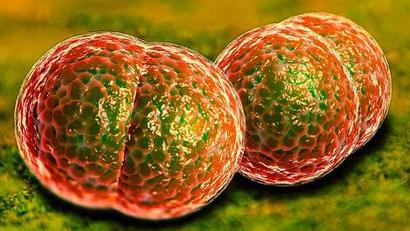A further case of meningitis in Sardinia: the importance of vaccination
A new case of meningococcal meningitis has been confirmed in Sardinia, this time caused by Meningococcus C. The victim in this tragic case is a 23-year-old student who died yesterday in Sassari. This sad outcome further underlines the importance of preventive vaccination.

Meningococcal meningitis, an insidious and ambiguous disease whose symptoms are not always immediately ascribable to the illness, which sometimes hinders a prompt diagnosis, has again caused a death in the province of Sassari. Yet again, its course was sudden and rapid, leaving little room for manoeuvre for the doctors and health workers who treated on the young patient. The 23-year-old student died yesterday morning, a few hours after being admitted to the Santissima Annunziata ICU. The diagnosis made by the Microbiology and Virology Unit of the AOU of Sassari was immediate and precise: infectious meningitis from Neisseria meningitidis.
This was then confirmed by the Institute of Hygiene and Hospital Infection Control which, through the Unit of Molecular Epidemiology, identified serogroup C as the cause. Antibiotic prophylaxis was also immediately administered to healthcare workers in contact with the patient and to those having come into close proximity to her.
"Analyses carried out this morning confirmed serogroup C” affirms Professor Andrea Piana, Coordinator of the Molecular Epidemiology Unit. “The isolated strain and the isolated biological samples will now be sent to the Istituto Superiore di Sanità (National Institute of Health) which is the national reference centre for meningitis”. In such circumstances, the specificity of the information obtained through a molecular investigation is of prime importance, both in order to confirm the diagnosis of meningococcal disease and thus the consequent timely prophylaxis intervention by the competent Public Hygiene Services, and also because knowing the serogroup responsible for the infection allows the Public Hygiene Services themselves to point any exposed subjects towards the correct prophylactic vaccine (Circular May 9th 2017).
“The diagnoses”, reiterates Professor Paolo Castiglia, Head of the of Hygiene and Control of Hospital Infections Unit of the AOU, “confirms that this is a case of meningococcus serogroup C, unlike those previously registered in the area. Moreover, this is a microorganism whose infection is preventable with routine vaccinations offered by the ATS Sardegna public health service both in childhood and adolescence, as well as to those at increased risk. There is no cause for alarm”, concludes Prof. Castiglia.
The Vaccinarsinsardegna.org team, extending deepest sympathy to the family of the young student, wishes to inform users that health surveillance persists in a constant and widespread manner throughout the Region. There is an active system in the regional territory through which all suspected cases are reported to the Public Hygiene Services in compliance with the 9 May 2017 Circular and the Surveillance Protocol for Invasive Bacterial Diseases of 10 October 2017. These cases undergo immediate diagnostic verification by the Microbiology services of the laboratories to which the samples to be analysed are sent.
In light of this tragic case, Vaccinarsi in Sardegna wishes to further reiterate how indispensable a conscious adhesion to vaccination programmes by the whole population is. Such prevention tools represent an important and sometimes irreplaceable life-saving protection against infection and the spread of infectious diseases..



